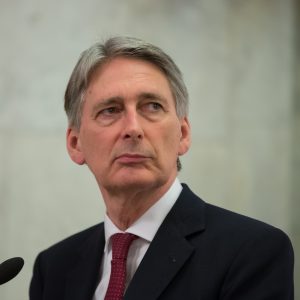
A stalling engine
Productivity, as measured in economic output per worker and per hour, has remained at roughly the same levels as in 2008.
The independent Office of Budget Responsibility is expected to “significantly” lower its productivity estimates, which entails weaker output, reduced tax revenues – and less manoeuvring room for the chancellor.
The Institute of Fiscal Studies (IFS) estimates that the lukewarm productivity growth will result in a public finances loss of up to £20bn when compared to previous estimates.
“The forecast for productivity this time around is likely to be more pessimistic than in March – that means slower wage growth, slower economic growth and lower tax receipts which will mean higher borrowing,” said the IFS.
A rock and a hard place
Meanwhile, the International Monetary Fund (IMF) has predicted UK growth to slow to 1.7% in 2017 and 1.5% in 2018.
And despite unemployment being at the lowest point since the 70s, real wages have been falling against rising prices. This October, inflation stood at 3%, while average wages grew by 2.2% in September – the difference partly owing to a falling pound leading to higher cost of imported goods.
Moreover, the Office of National Statistics (ONS) recently reported a fall in employment figures, with the number of people employed falling by 14,000 in the July to September period, to approximately 32 million – suggesting that the employment boom may be coming to a head.
With housing at the top of the agenda, the chancellor has pledged to build 300,000 new homes a year to meet UK’s chronic housing shortage – and pre-budget speculation is pointing to stamp duty giveaways for first-time buyers (FTBs).
With stagnant productivity and lacklustre economic growth forecasts – not to mention the political sensitivities of the Brexit divorce process – Philip Hammond will have to “box clever” said Iain McCluskey, partner at PwC.
“The Chancellor appears to be somewhat handcuffed by both the politics of Parliament and the lack of money to play with, so he will need to box clever to make an impact,” he said.
McCluskey continued: “Targeted, low cost, simple but popular tax changes are the nirvana he will be shooting for. If only it was that easy,” he added.
















